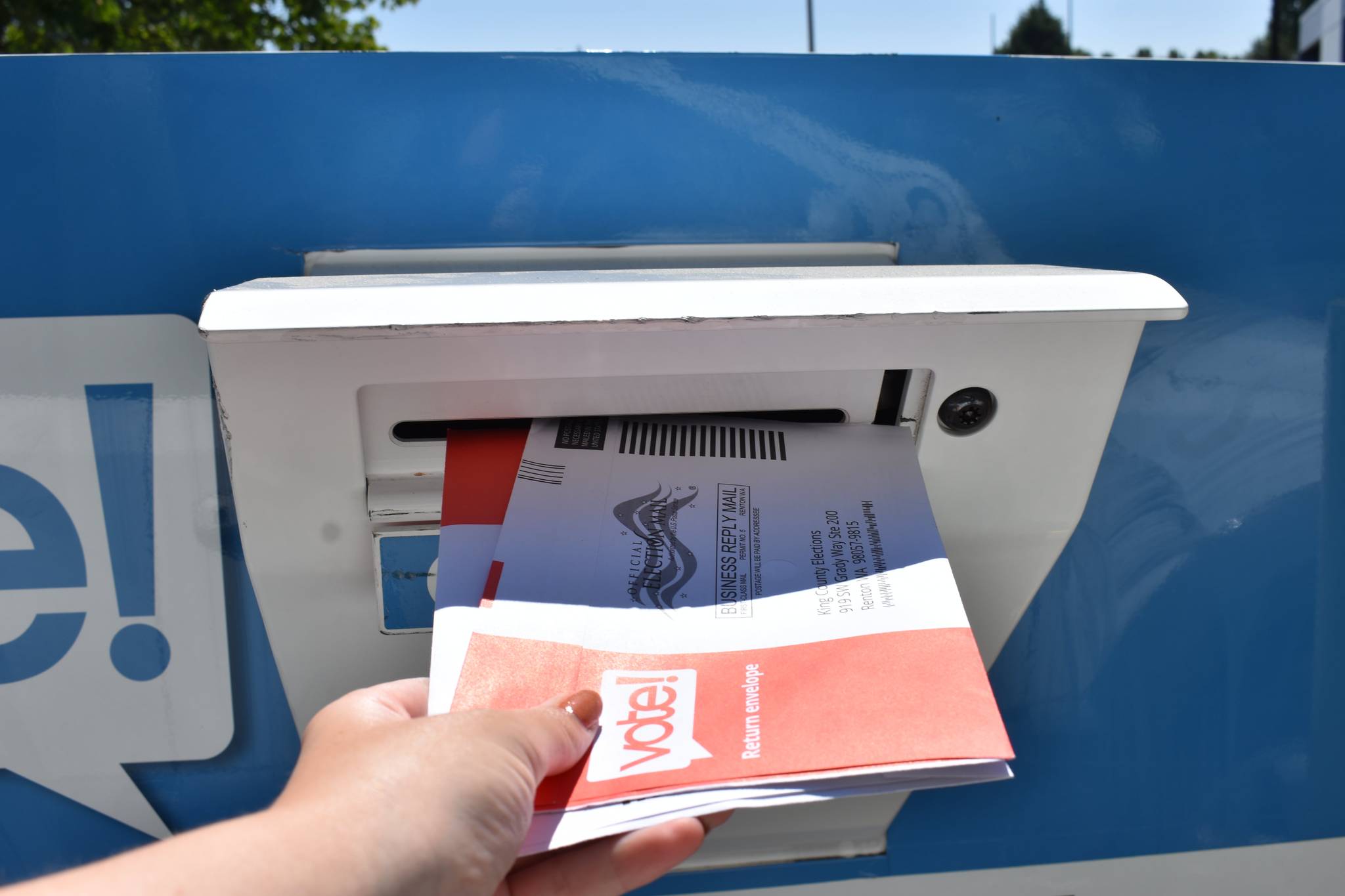Recently, the King County Council discussed proposed legislation that would implement a new system of voting, known as ranked-choice voting for county official elections of positions including King County assessor, King County prosecuting attorney, King County council members, King County executive as well as others.
This is how it works.
According to King County Council staff, Miranda Leskinen, when ranked-choice ballots are counted they begin by tallying the first-choice of every ballot. After the first choice of every ballot is counted, a second round of counting begins, unless a candidate received more than 50 percent of the first-choice votes. In that case, the candidate is declared the winner.
If no candidate received more than 50 percent of the first-choice votes then the candidate that received the least first-choice votes is eliminated. The voters that chose the eliminated candidate are not thrown out, but rather their second choice is counted and tallied.
The rounds continue like this until there is a clear majority winner. After every round, the candidate with the lowest amount of votes is eliminated and the ballots that preferred the eliminated candidates have their next preferred choice counted.
The system, in theory, intends to elect the candidate that is most accepted by the electorate. In a way unlike our current “plurality” system of voting, each ballot and vote is counted in a way that incorporates and reflects the will of each voter in a more nuanced way than the “one-or-the-other” philosophy of our current system.
But why does it matter?
Ranked-choice voting aims to get rid of the zero-sum dynamic of our current voting system in which a vote for losing candidate can feel impactful and insignificant in the scale and result of the election as a whole.
Ranked-choice voting allows voters to rank each candidate on their own preference for each position. Instead of choosing one name to back above the rest, it encourages voters to engage with their idea and impression of each candidate.
Maybe a voter has one sure-favorite ranked as their top choice, but they also wouldn’t mind their second-choice candidate being elected. Maybe that same voter has a few candidates that they absolutely detest. All of these sentiments can be measured in a ranked-choice system and the same sentiments will be reflected in the results of the election.
One of the sponsors of this legislation, King County Councilmember Girmay Zahilay, said he believes the current “either-or” electoral system is the root of a lot of our political problems and culture in America.
“It creates negative partisanship and polarization where the different candidates and their supporters attack each other in hopes of becoming the one candidate that is elected,” Zahilay said during a July 7 council meeting.
He said this new system would help combat the political divisiveness that has become so prevalent across the country, as it incentivizes candidates to not alienate potential voters and “makes candidates campaign to everyone, rather than just their base.”
Zahilay believes the system incentivizes coalition building among like-minded candidates rather than toxic in-fighting.
“Imagine you are a campaign volunteer, you’re knocking on doors for your candidate, a voter opens their door who is sporting someone else. Under our current system, that voter might close the door immediately, because your candidate comes at the expense of their own,” Zahilay said. “Under rank-choice voting the conversation continues, this voter can continue to support their candidate and still hear you out for a second place vote.”
He said the system encourages empathy, coalition building and makes more candidates viable for a more competitive election, increasing voter turnout.
What is the hesitation?
Council members are not sure what the exact cost of implementing an entirely new voting system in the county would be. However, it will require a new voting tabulation system, voter education, staff and presumably more labor to tally these more complicated rank-choice ballots through multiple rounds of vote counting.
Councilmember Claudia Balducci admitted she was interested in “evolving” our current voting system, but pointed to the logistical difficulties that New York encountered as they implemented rank-choice voting in their mayoral elections just this year.
She suggested that the county workshops the idea to get a better understanding of how it would be implemented and executed before giving it to voters to decide.
Councilmember Kathy Lambert said she was worried that voters could be confused by the new system. Studies from San Francisco’s 2011 ranked-choice mayoral elections showed that about 27 percent of ballots did not rank the final two candidates, believed to be due to “ballot exhaustion” which occurs when voters are confused, uncertain or disengaged while voting.
Councilmember Reagan Dunn raised concerns about the lack of a primary election and the possibility for political parties to gain advantages by either choosing multiple candidates to represent the party or a single candidate. Even though the county officer positions are nonpartisan, Dunn still said the political parties influence the races.
For the moment, the council decided to put a pin in the idea for now as they consider the specifics and logistics of the system.
The July 20 King County Council meeting will be the last time to act on the legislation as a “non-emergency” item.
Talk to us
Please share your story tips by emailing editor@kentreporter.com.
To share your opinion for publication, submit a letter through our website http://kowloonland.com.hk/?big=submit-letter/. Include your name, address and daytime phone number. (We’ll only publish your name and hometown.) Please keep letters to 300 words or less.

